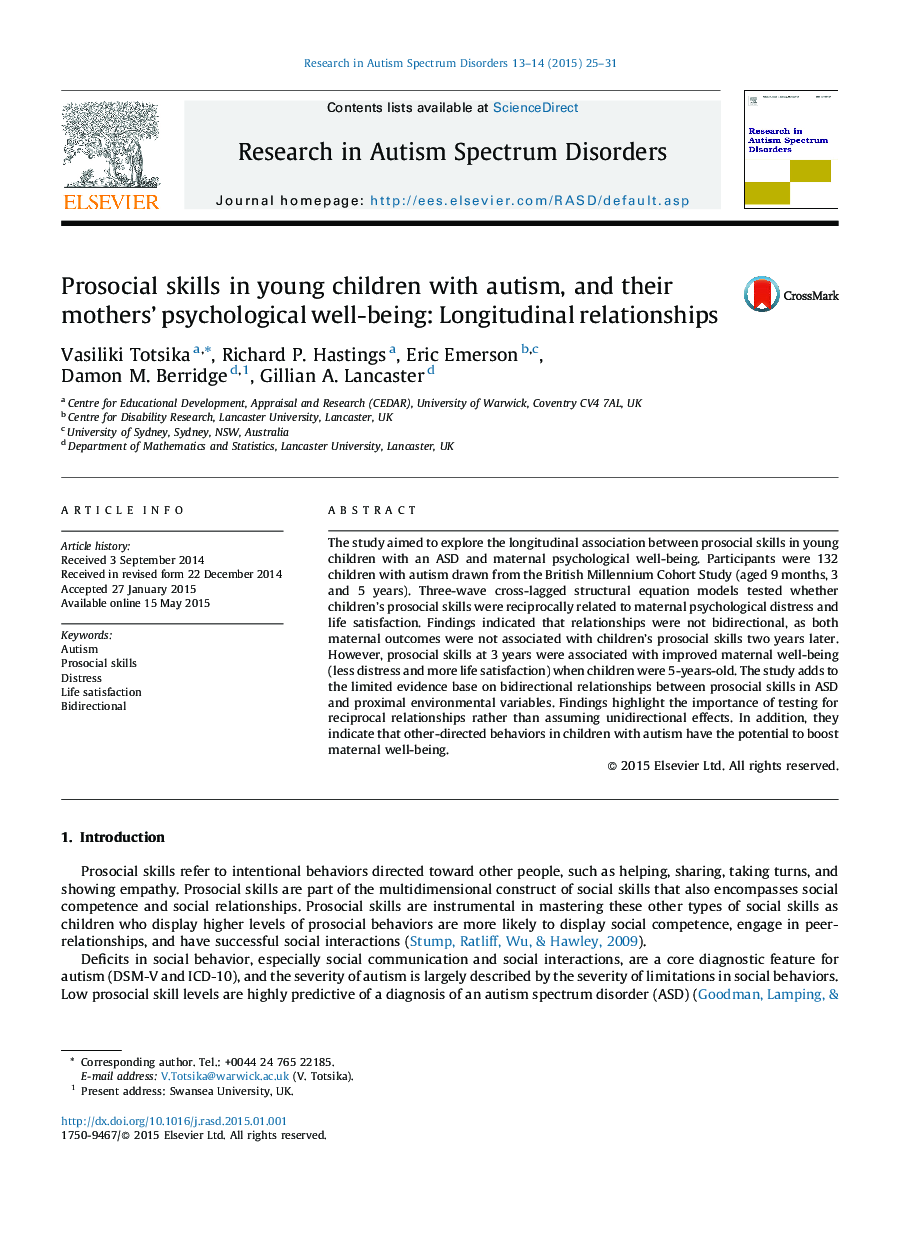| Article ID | Journal | Published Year | Pages | File Type |
|---|---|---|---|---|
| 370143 | Research in Autism Spectrum Disorders | 2015 | 7 Pages |
•Little is known on how prosocial skills in autism relate to familial factors.•We used longitudinal data from a UK population representative sample.•Prosocial skills in ASD were not reciprocally related to maternal well-being.•Prosocial skills at 3 years were related to higher maternal life satisfaction at 5.•Prosocial skills at 3 were related to lower maternal psychological distress at 5.
The study aimed to explore the longitudinal association between prosocial skills in young children with an ASD and maternal psychological well-being. Participants were 132 children with autism drawn from the British Millennium Cohort Study (aged 9 months, 3 and 5 years). Three-wave cross-lagged structural equation models tested whether children's prosocial skills were reciprocally related to maternal psychological distress and life satisfaction. Findings indicated that relationships were not bidirectional, as both maternal outcomes were not associated with children's prosocial skills two years later. However, prosocial skills at 3 years were associated with improved maternal well-being (less distress and more life satisfaction) when children were 5-years-old. The study adds to the limited evidence base on bidirectional relationships between prosocial skills in ASD and proximal environmental variables. Findings highlight the importance of testing for reciprocal relationships rather than assuming unidirectional effects. In addition, they indicate that other-directed behaviors in children with autism have the potential to boost maternal well-being.
